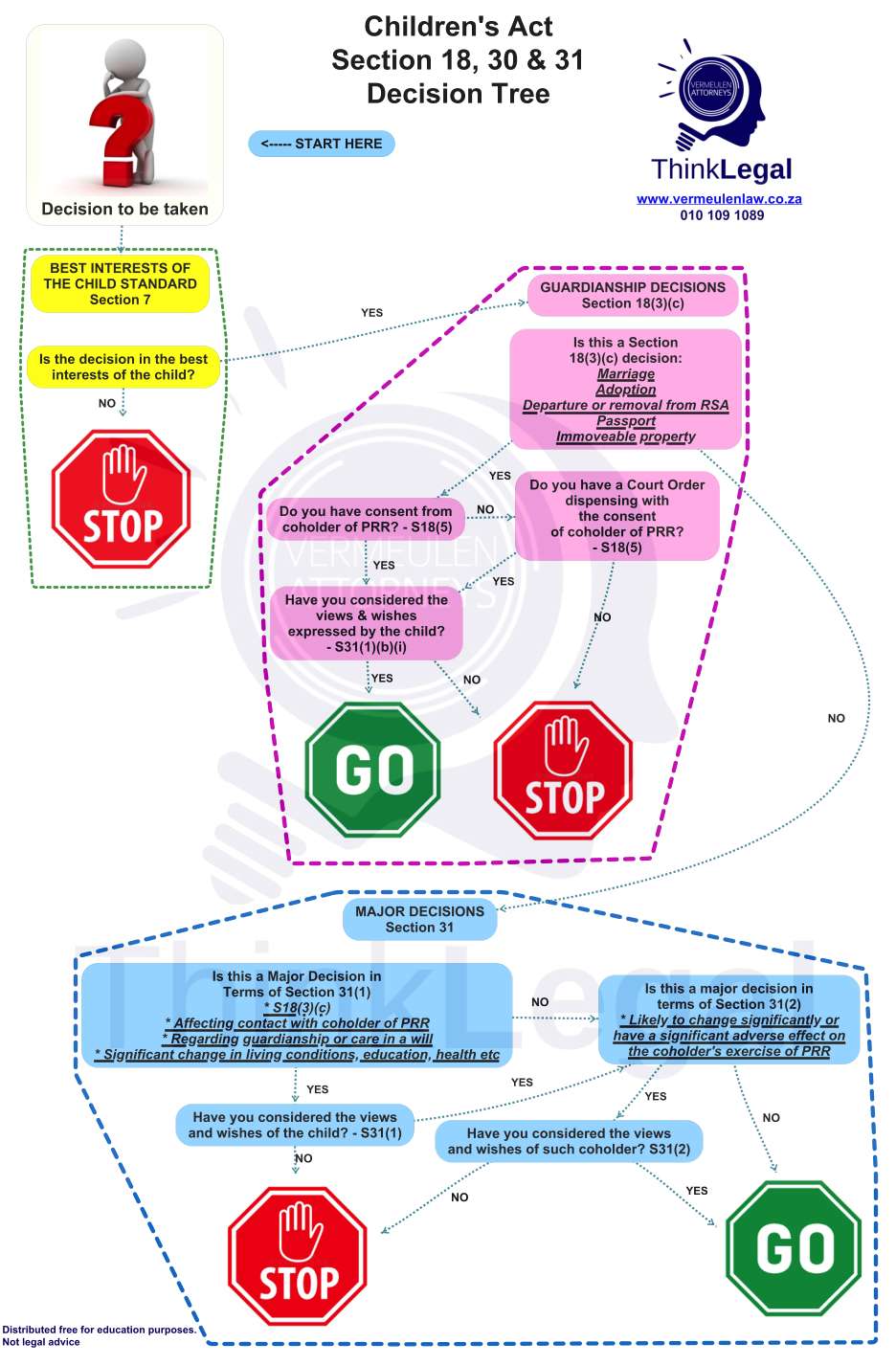
You want to make the best decisions for your child’s well-being as a parent. When parents are divorced or separated, it can be difficult to determine who has the final say in major decisions regarding the children. The South African Children’s Act of 2005 outlines the duties of coholders of parental responsibilities and rights (“coholders”).
Section 30: Parental Responsibilities and Rights Co-Holders Can Act Independently
According to Section 30 of the Children’s Act, multiple people can have parental responsibilities and rights over the same child. Unless otherwise specified by the Act, another law, or a court order, each coholder can act independently when exercising those responsibilities and rights.
This means that, unless certain exceptions apply, if you share parental responsibilities and rights, you have the authority to make decisions about your child’s upbringing and welfare without the consent of the other coholder.
Section 18(3)(c): Certain guardianship decisions require the consent of both parents.
Some guardianship decisions must be made with the consent of both parents or, if one of the parents refuses to consent, with the Court’s permission.
These include adoption, marriage, leaving South Africa, obtaining a passport, and selling immovable property owned by the child. If you want to do any of these things, you must first consult with the other coholder and obtain their approval. If they refuse to consent, you can approach the Court for an order dispensing with their consent.
Section 31(1): Take into account the child’s views and wishes
Before making any major decision involving the child, you must consider the child’s views and wishes. This is in terms of Section 31(1) of the Children’s Act. A major decision in this context is any decision that has the potential to significantly change or harm the child’s living conditions, education, health, personal relationships, or well-being.
When considering the child’s views and wishes, the child’s age, maturity, and stage of development must be considered.
You can ensure that the child’s voice is heard and that they can appropriately participate in life decisions by taking into account their views and wishes.
Section 31(2): Take into account the views and wishes of the coholder of parental responsibilities and rights
Before making any decision that could significantly alter or negatively impact a coholder’s exercise of parental responsibilities and rights in relation to the child, the parent must consider that coholder’s views and wishes. Section 31(2) of the Children’s Act stresses the importance of coholders cooperating to benefit the child.
Think about the coholder’s views and wishes when making big decisions. This ensures that both parties are on the same page. This can also prevent conflict, which is beneficial to the parties and the child in the long run.
Understanding the Children’s Act and the duties imposed on those who share parental rights and responsibilities is critical if you want to make good decisions for your child’s well-being. You can work together to give your child the best possible future by considering what the child and the other coholder think and want. Major decisions regarding children should be made collaboratively and in good faith as far as possible.
For more information, contact Vermeulen Attorneys.
It can be difficult to navigate the complex landscape of parental responsibilities and rights, especially during or after a divorce or separation. If you are faced with a difficult decision and require legal counsel, Vermeulen Attorneys can help. Our experienced family law attorneys can guide you through the legal process while looking out for your child’s best interests.












